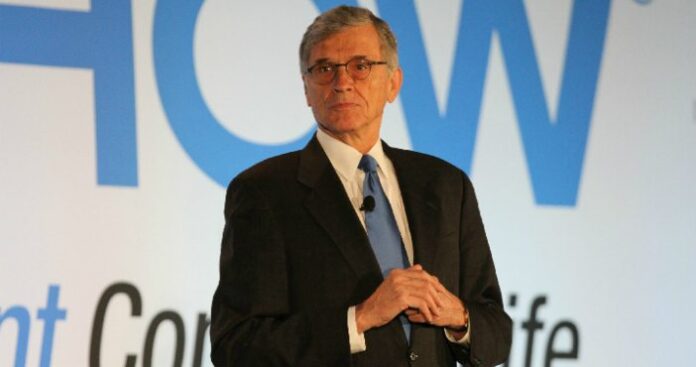Report suggests Wheeler against T-Mobile US request for 40 megahertz spectrum reserve
The Federal Communications Commission is reportedly set to dismiss a request from T-Mobile US to increase the amount of reserved spectrum set aside for the upcoming 600 MHz spectrum auction.
Bloomberg Business cited people “familiar with the matter” in noting FCC Chairman Tom Wheeler will recommend the government agency deny T-Mobile US’ request that 40 megahertz of spectrum be placed out of reach of the mobile market’s two largest operators, Verizon Wireless and AT&T Mobility.
“It’s not over yet,” Timothy O’Regan, a T-Mobile US spokesman, told Bloomberg Business in an e-mail. “We have a long way to go. The public conversation on the future of the mobile Internet continues. The five FCC commissioners still need to make their decision.”
Wheeler noted in a blog post yesterday that the commission staff briefed the commissioners’ staffs this week on proposed recommendations for final auction rules that “ensures that competitive wireless carriers and new entrants have a clear shot at adding sufficient low-band spectrum to their portfolios so that they can compete more effectively in both rural and urban areas.”
“No single party will be happy with everything we’ve done, but the final product is a balanced solution to a challenging situation with more moving parts than a Swiss watch,” Wheeler stated.
Wheeler also noted in his blog post that the full commission staff last week approved revised rules designed to provide more flexibility to television broadcasters to share spectrum assets that would in turn open up the ability to return more spectrum to the FCC.
The FCC initially released auction rules last year that would set aside no more than 30 megahertz of spectrum in each market that would only be available to bidders currently controlling less than one-third of spectrum in those markets below the 1 GHz level. That move followed guidelines proposed by T-Mobile US in 2013 as part of its “dynamic market rules” filing.
However, T-Mobile US has more recently stated it feels the FCC should set aside 40 megahertz of spectrum in each market, or roughly half of the expected amount of spectrum to be gleaned through the reverse auction process with television broadcasters. That 40 megahertz amount could theoretically allow for at least two players to procure a sizable 20 megahertz of spectrum in those markets.
T-Mobile US CEO John Legere late last week reiterated the carrier’s latest stance in a video tirade that drew a condescending response from Verizon Communications and technical questions from AT&T.
Bored? Why not follow me on Twitter

